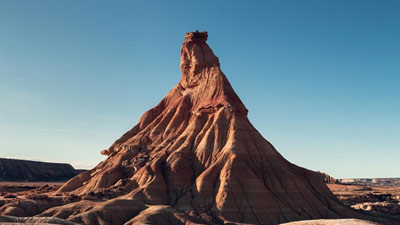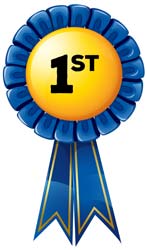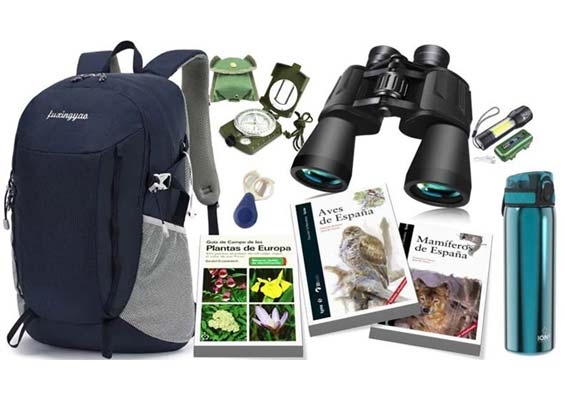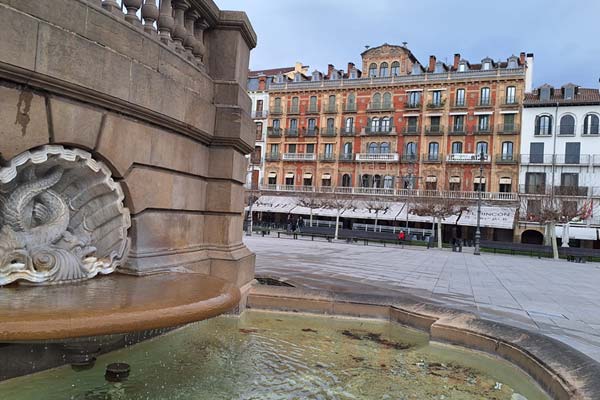studIAS
Conference on Impressive and Amazing Species (IAS) for students

School of Sciences - University of Navarra
![]() Welcome to the website of studIAS 2024, the biannual conference for high school students.
Welcome to the website of studIAS 2024, the biannual conference for high school students.
This meeting is designed as an educational tool and a space for exchange between young people interested in science. Each edition revolves around a current topic, such as urban biodiversity, with the aim of promoting knowledge, reflection and awareness of the environment around us.
At studIAS, students can present the scientific work developed in their schools, attend lectures by experts, participate in experiments and enjoy field trips that will allow them to learn more about nature.
The works submitted are eligible for very special prizes, such as a trip to a National Park, among other gifts.
We want you to be part of this experience. The idea is not only for those who can, but for all those who want to come. Therefore, all expenses related to the stay in Pamplona, registration and catering service are covered. We only need your presence and your desire to learn and enjoy.
The next edition will take place in 2026 and we look forward to seeing you there!

Dr. Rafael Miranda
Congress Director
This congress is focused on the dissemination of biodiversity and is proposed as a continuation within the future activities of the LIFE INVASAQUA project (LIFE17 GIE/ES/000515).

How to participate?
Participating teams will be formed by a maximum of three students from the same academic year (between 1st and 4th year of ESO), who will be assisted by a teacher. Each team will present a project that will have to deal with urban biodiversity. The presentation of the project will be only in person, during the periods established throughout the days of the congress.
The prizes awarded at this congress are for the students and for the teacher. Each school or institute can present several groups.
More information
![]() The projects presented will be evaluated by a committeeThe jury, made up of scientists of recognized prestige, will evaluate them on the basis of their scientific rigor, interest and creativity.
The projects presented will be evaluated by a committeeThe jury, made up of scientists of recognized prestige, will evaluate them on the basis of their scientific rigor, interest and creativity.
![]() The presentation of the project will be in oral formatThe presentation should preferably be in the form of a slide presentation, although it may be accompanied by videos, printed material or whatever the team believes can reinforce its message. In this sense, not only the originality of the project will be valued, but also the creativity in its presentation.
The presentation of the project will be in oral formatThe presentation should preferably be in the form of a slide presentation, although it may be accompanied by videos, printed material or whatever the team believes can reinforce its message. In this sense, not only the originality of the project will be valued, but also the creativity in its presentation.
![]() The participating team has a maximum of 10 minutes to present your project. Afterwards, the floor will be given to the public present in the room and to the members of the tribunal, so that they can make suggestions and ask any questions they may have.
The participating team has a maximum of 10 minutes to present your project. Afterwards, the floor will be given to the public present in the room and to the members of the tribunal, so that they can make suggestions and ask any questions they may have.

Program
MONDAY, JUNE 3RD
Assembly Hall - Faculty of Sciences
15:00 h - Reception of congress participants and handing over of documentation.
15:30 h - Opening ceremony.
Rafael Miranda (director of the congress).
15:45 h - Inaugural conference. 

"Biodiversity in our streets".
Lorena Escuer. Founder and technical director of Hidrobiology.
16:30 h - Birds in Pamplona and their negative effect on human daily life.
Oihan Izquierdo, Martín Elizari, Lucas Marcos.
16:45 h - The moss: a closer look at the beings that inhabit it.
Gabriel Alsasua, Ignacio Bernaola, Jaime Quintana.
17:00 h - Seeing is believing.
Sofía Galbete Rojí, Alejandra Luparelli, Carolina González Zapata.
17:15 h - Break. Drinks and refreshments.
18:00 h - World Environment Day.
Esplanade of the Ismael Sánchez Bella building.
Edition 2023:
TUESDAY, JUNE 4
Assembly Hall - Faculty of Sciences
09:00 h - Degradation of the Mediterranean coastal habitat.
Noa Ávila Navarro, Daniela Foko Antolín, Oihane Gorospe Sanz
09:15 h - Our neighbors the kestrels.
María Irigoyen Uzqueda, Julia Díez Grandal, Elena González García.
09:30 h - Study on the diversity of diurnal Lepidoptera and nutritious plants in the urban environment of Alcobendas.
Isabela Murcia Ariza, Lucía Mendoza Martínez, Nuria Quero Langreo
09:45 h - MurciAélagos, the biodiversity of the Murcian night.
Alejandro Egea Nicolás, Sergio Rodríguez Ballester, Juan Carlos Vázquez Mercader
10:00 h - Mini Forests that work: Miyawaki Method.
Luis Martín Vélez, Pedro Sánchez-Lamadrid Álvarez, Juan Felgueroso Lantero.
10:15 h - The impact of the American mink in Spain.
Nicolás Huarte Gil, Álex Jaso Román
10:30 h - Urban air biodiversity (flying rats).
Aitor Melas Ridaso, Saul Rey Morilla, Miguel Díaz Ramos.
 10:45 h - Keynote lecture
10:45 h - Keynote lecture

"The microbes of your urbanism".
Ignacio López Goñi. Professor of microbiology and director of the Science Museum of the University of Navarra.
11:30 h - Break. Drinks and refreshments.
12:00 h - Natural intelligence.
Luca Campan Mesaros, Gonzalo Simón Girón, Marcos Vicente Blas.
12:15 h - Murcian gardens, foreigners or from here?
Irene Moreno Alonso, Larisa Martínez Pavlova
12:30 h - Ecological value of Ulmus pumila.
Isabel Echeverría Marcelino, Nora Pemán Moreno, María Rodríguez Rives.
12:45 h - To the rescue of the air.
Unai Ramírez Ochoa, Gabriel María Gómez, Fernando Cámara del Val.
13:00 h - Adaptations to the urban environment.
Vicente González Villar, Pablo López Crespo
13:15 h - Up here! Down here!
Sophie Huayta Montesinos
13:30 h - Pío Escape
Alejandra Murugarren, Elena Rodríguez, Irene Malafarina
13:45 h - Biodiversity control by biological agents
Andrea Santamaría Stefanova, Leire Erice Pajuelo, Elsa Escalada Jiménez
14:00 h - Break - Lunch.
15:30 h - Eco-friendly pest control.
Alberto Pérez Carrera, Jaime Leza Ortiz, Mateo Cardona Jurado.
15:45 h - AveXplora.
Bruno Fernández Alonso de Medina, Pablo Muñoz Pérez.
16:00 h - Green Shelters.
Paula Bueno García, Carla Guijarro Dorta, Julia Guijarro Dorta.
16:15 h - The biodiversity horoscope.
Natalia Pascua Ramón, Sandra Montis Cajal
16:30 h - Study of the birds of Irun with eBird.
Nayet Fernández Alonso, Alexander Hernández Gómez, David Legarda López-Quintana
16:45 h - Beyond noise. Impact of noise pollution on urban biodiversity.
Iraia Martín Mauleón, Irati Azcona Melean, Mar Azcune Elizalde
17:00 h - Break. Drinks and refreshments.
17:30-19:00 h - Field trip - On Safari in Pamplona.
Enrique Baquero, Rafael Miranda, Antonio Vilches, Ricardo Ibáñez

WEDNESDAY, JUNE 5
Assembly Hall - Faculty of Sciences
09:00 h - Galapagos in Pamplona.
Marta Cereceda Pérez, Miguel Saiz de Agapito
09:15 h - Urban rewilding.
Marco Longhin Pérez, Pablo Rodríguez Rodríguez, Cayetano Otero Pérez.
09:30 h - Help to the "inhabitant of the garbage dump".
Diana María de Francia Pueyo, Yasmina Adillón el Yaagoubi
09:45 h - Moss: A world of biodiversity in the asphalt jungle.
Matías Bedoya, José Baleztena, Javier Martínez de Bedoya.
10:00 h - Mexican bullfinch, the last to arrive in the city.
Ángela Martínez Martínez, María Meroño Ruiz, Sofía Sánchez Fernández
10:15 h - Urban pests.
Amelia García Marí, Valentina Eiroa Calatayud, Fátima Moreno Malmierca.
10:30 h - The impact of the Asian wasp on urban biodiversity.
Sofia Zhu Lin, Nahia Salaverri Madurga, Aiala Serrano Velasco, Ane Gurruchaga Loitegui
 10:45 h - Keynote lecture
10:45 h - Keynote lecture

"Citizen chemistry... and alive".
José Ramón Isasi and Cristina Sola, Department of Chemistry at the University of Navarra.
11:30 h - Break. Drinks and refreshments.
12:00 h - The green side of buildings.
Jorge Armas Garoz, Ángel De Cáceres Gómez, Ulises Alexander Iglesias Martín.
12:15 h - Biodiversity of Marbellla.
Rafael Acaiñas, Mikhail Gramotkin, Tomás Echeverría, Barry Pleguezuelo
12:30 h - Study of the birds of Pamplona.
Inés Medarde, Maria da Graça Cabral da Câmara Vieira da Cruz, Sara Segura Olóndriz
12:45 h - Lake of As Pontes de García Rodríguez.
Carlos Ortiz Moya, Saúl Rodríguez Mouriño, Rafael Ucha Hermida.
13:00 h - What the future looks like.
Lucas Malaga Baeza, Eloy Riera Chaves, Carlos Zapico Lombardy.
13:15 h - Light pollution.
Victoria Valcarcel Luquin, Irantzu Izco Mauleón.
13:30 h - Sixth mass extinction.
Lucía Juanco Vila, Daniela Salvador Moncayola, Ana Bernaola Arroqui
13:45 h - Design of a brochure for urban gardens.
Alex de la Morena Lahrach, Diego Nicolás Arteaga, Iker Ostiategui Badía.
14:00 h - Break - Lunch.
15:30 h - Green lung.
Javier Hurtado Navarro, Sergio Ávila Atehortua, Antonio Orden Sanchís.
15:45 h - Plant biodiversity in the Roman wall of the city of León.
Itziar Martinez García, Sofía Arruti Nuñez, Guillermo Fernández Ochoa.
16:00 h - How cycling helps both environmental and human health.
Carlo Rubio Yoldi, Julen Cenoz Apezteguía, Rubén Barasoain García
16:15 h - Animals updated.
Dana Shchelokova, Paula Campo Vicente, Natalia Oliveira-Marqués Ordovás
16:30 h - The woodpecker, everyone's friend.
Marina Tarifa Solozábal, Ana Rincón Zudaire, Carla García Revuelta
17:00 h - Break. Drinks and refreshments.
17:30 h - Field trip. - Exhibition of birds of prey by Tierra Rapaz.
María Ríos (biologist and agricultural engineer).

19:30 h - Awards ceremony and farewell cocktail.
Aula Magna of the Central Building of the University of Navarra.
THURSDAY, JUNE 6TH
Visit to the Bardenas Reales Natural Park
08:30 h - Bus departure.

We will visit the Natural Park and Biosphere Reserve of the Bardenas Reales. We will be accompanied on the visit by scientists who will explain the research projects that are being carried out in the park. We will visit some of the trails of the park, a characteristic landscape of abrupt relief, full of hills, plains and ravines and the Information Center of Bardenas Reales de Navarra, which will allow us to know and better understand the natural values of the Park.
13:00 h - Return to Pamplona.
We will be back in Pamplona before two o'clock in the afternoon, so that we can say goodbye and everyone can return to their homes.

Awards

The first prize is a trip to a National Park, to be chosen from the following options:

ATLANTIC ISLANDS OF GALICIA

TABLAS DE DAIMIEL

ORDESA AND MONTE PERDIDO
The prizes awarded at this congress are for the students and for the teacher. The winning team will be accompanied by an expert, who will act as a guide, showing the most outstanding aspects of the fauna and flora of the National Park. The prize covers all travel expenses, including management and access to the sites to be visited. The four-day trip will take place on dates to be agreed between the winning team and the organization.
The second prize is a field kit for wildlife observation.

The prize consists of a complete kit for each of the winners, both for the students and the teacher. The kit includes a mountain backpack, a field guide to the Birds of Spain, a field guide to the Mammals of Spain, binoculars (10x50 waterproof), a field guide to the plants of Europe, a compass, a magnifying glass and a field canteen.
The third prize is a set of products from the Faculty of Science of the University of Navarra.

As in previous cases, the prize is for each of the winners, both for the students and for the teacher. In this case the prize consists of a lab coat, a sweatshirt, a gymsack and a notebook from the Faculty of Science, and a T-shirt from the Science Museum of the University of Navarra.

Data of interest
Lodging

If you are from outside Pamplona, our commitment is to facilitate your attendance. For this reason, expenses related to your stay in Pamplona are covered, as well as the congress registration and associated catering services.
How to get to the University
If you come by car, during the days of the congress access to the parking lot will be provided, do not hesitate to contact us to request it.
Additional information:
What to see near Pamplona

If you do not know the city, Pamplona is a modern city with many places to visit, you have all the information on the website of the City Council.
Suggestions:
→ Source of the Urederra
→ Señorío de Bértiz
→ Irati Forest
→ Gorges of Lumbier and Arbayun







